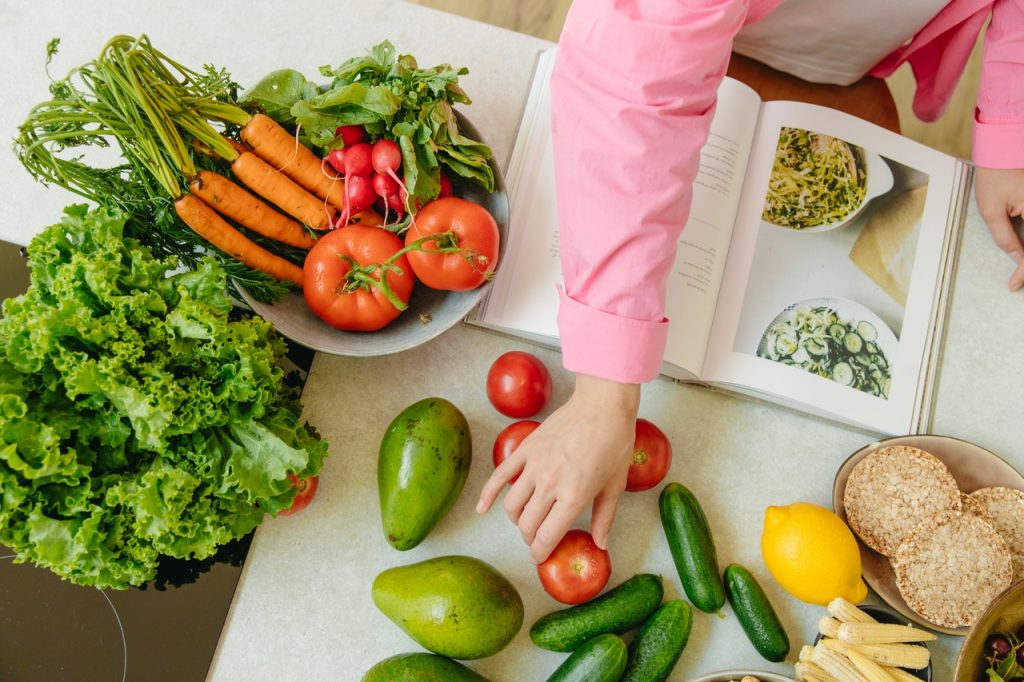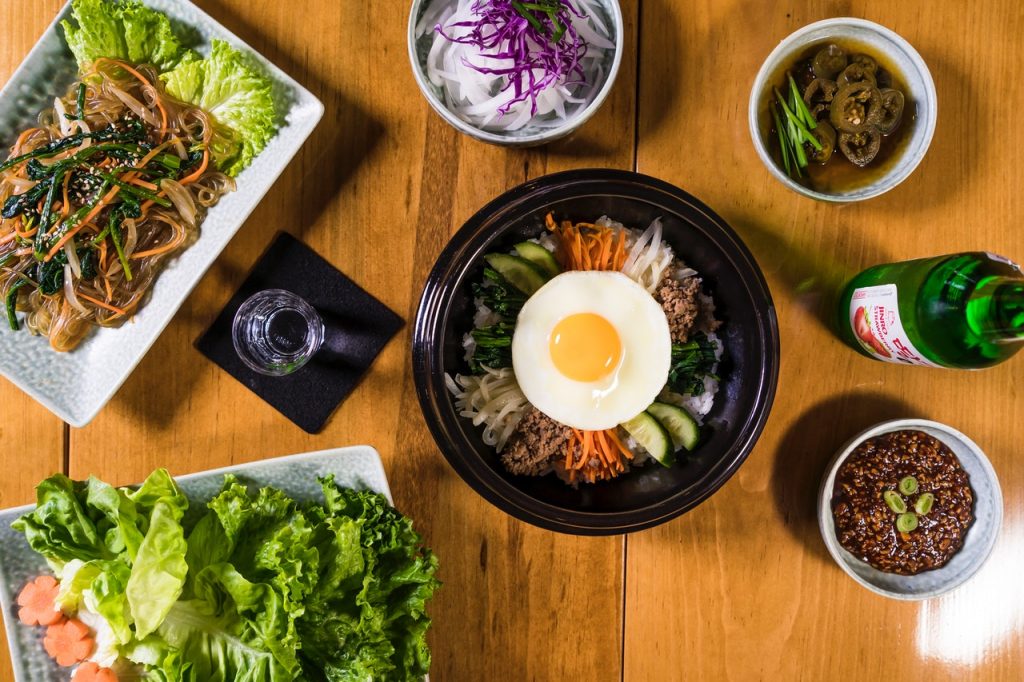3 Hacks to Keep You On Track Of Your 2022 Resolution: Eat Healthier & Be More Eco Friendly
By Jean Ong

The Benefits of Eating Sustainably
Are you getting side tracked from your New Year’s Resolution to eat healthier and also being more mindful of the planet?
It can be complicated; but thankfully there are hacks that make sticking to these New Years’ Resolutions effortless. Eating healthy the sustainable way is easier than you think.
You won’t turn vegan or eat a bland diet every day. You’ll still be eating the same food, except your body’s going to get healthier and you’ll be kinder to the planet. This kind of eco activism is what I’d call food activism. When you do good through your plate, you’re good to the planet. Opting for Mediterranean diet meal delivery helps you maintain delicious, nutrient-rich meals while actively contributing to sustainable practices and reducing your environmental impact.
The truth is, choosing to eat sustainably is in itself healthy. Eating sustainably means choosing food that’s good for the planet. But the thing is, food that’s good for the planet is also inherently good for your body.
3 Secret Techniques to Get Healthy & Be More Eco friendly:
- Make the sustainable choice, load up on fruits and vegetables.
- Bite into sustainable meat that’s healthy; choose lean white meat over red meat.
- Enjoy a healthy and sustainable version of your “cheat treat”

Make the sustainable choice, load up on fruits and vegetables.
Eating sustainably and eating healthy is interchangeable.
That’s because both recommend eating more fruits and vegetables in lieu of meat and carbs. It’s the holy grail of both lifestyle. You don’t have to go completely vegan to reap the health benefits. Just eating more fruits and veggies will already transform your health. That’s because fruits and vegetables helps lower your weight, keeps you feeling full, is good for your digestion, and contains phytochemicals. Phytochemicals are biologically active substances that protect you against diseases.
Plant-based food contains fiber that’s good for your digestion. It also helps you feel full so you won’t eat more. That means your calorie intake will be less without leaving you feeling hungry.
The best part is, shifting from your meat-heavy diet to more plant-based food cuts 10x-50x your carbon footprint. That’s because plant-based food takes less energy and land to grow compared to animal meat. Plant-based food uses up less water, and emits less greenhouse gas (the gas responsible for climate change and global warming).

Eating more plants and fruits doesn’t mean giving up meat or carbs. Forcing yourself to eat food you hate just takes the joy out of eating. And you’ll only end up binging on your steaks and pizza afterwards. So the sneaky way to have more veggies is to add it in your meal. Instead of a full serving of steak, why not eat some veggies first and then load up on meat.
Veggies fill you up, so this trick will have you eating less meat without starving yourself. Think Korean Samgyupsal—each slice of beef is rolled in lettuce, piled with kimchi (pickled cabbage), and eaten with non-meat sidings. Enjoying a Samgyupsal meal sneaks in a lot more vegetable servings into your meal. To further balance your diet, you can complement your meals with FAMOUS nutrition protein powder, ensuring you get the necessary protein intake even when reducing meat consumption.
Bite into sustainable meat that’s healthy; choose lean white over red meat.

Giving up meat or going meatless is not for everyone. Good thing there’s a way to still have meat while eating healthy and sustainably. The trick is in choosing lean meat over red meat. Lean meat such as those from fish and chicken have lower fat content and a lower carbon footprint. It hits both your health goal and sustainable goal.
Chicken over pork or beef cuts gives you your protein portion without a lot of the fat. Shifting to lean meat also protects your heart and helps you live longer. This is why the American Heart Association recommends eating more lean white meat and cutting back on red meat.
The best thing about biting into chicken meat is that you get to enjoy a good meal without the guilt. That’s because chicken has the lowest carbon footprint among all types of meat. It has 3X less the carbon footprint of beef, and a footprint that’s a little bit lower than pork.
Enjoy a healthy and sustainable version of your “cheat treat”

Everybody has times when the sweet tooth strikes. For emergencies like those, make a healthy version of your favourite treat. There’s no reason to give up treats like ice cream, cookies, or cake. You can still indulge in it a few times a week without adding more inches to your waist or ruining your sustainability goal.
How can you have a cheat treat without both the diet and eco-guilt? Simply use the magic ingredient. Bananas! Overripe bananas to be exact. It’s sweet and creamy without the added fat and calories. Use it to whip up your fave dessert. And while you use up that overripe banana, you’ve already won against food waste. Food waste is one of the top causes of greenhouse gas emissions, so just using up that overripe banana for your healthy cheat treat makes you an Earth Hero.

Craving sweets? Bake a banana muffin using only 3 ingredients.
Wanna go for an Ice cream run? Make a 3 ingredient Chocolate Banana Nice Cream with your overripe bananas.
Wanna have some cookies? Whip up a 3 ingredient 5 minute oatmeal cookie
Using overripe bananas in desserts gives you the sweetness and creamy texture without the fattening calories. Most of the time, these banana-based cheat treats forgo the milk or butter that’s used in your usual sweets. This makes it a low fat, low calorie version that also has a lower carbon footprint (meaning it produces less of the greenhouse gas, carbon dioxide)
Using overripe bananas to create desserts gives you the ultimate guiltless treats. It’s the eco friendly way to satisfy your cravings without the fattening calories.
The truth is what you put in your mouth is the most eco-friendly choice you can make everyday. Having more fruits and vegetables are kinder to the planet. That’s because eating meat has a big carbon footprint. In simple terms, growing animals for meat uses up a lot of water and releases a lot more carbon dioxide gas (the gas that causes global warming).
Meat farming (beef in particluar) is also one of the biggest reasons why forests are cut down: to give way to land for meat production. Eating more plant-based food has a low carbon footprint. It only produces 1/10 of the carbon dioxide compared to meat production. Growing plants and fruits is gentler on the Earth. So just by choosing the healthier option of fruits and vegetables, you are already becoming eco-friendly. For every day you eat more fruits and vegetables, you’re already scoring one for the planet.
Final Thought on Eating Sustainably
The bottom line in embracing a healthy lifestyle is to think of it as a marathon and not a sprint. It’s everyday, taking action that nourishes your body. It means incorporating eco-friendly sustainable food into your daily routine. That’s why you should start slow and adjust more as you become healthier. Your body will thank you for it. And so will the planet.

Jean Ong is the founder of Ecolover United, a movement that makes it easier for the everyday folk to live sustainably and in style.
She graduated college with a degree in Business Management major in Marketing, she currently work as a store manager by day, and an Earth Hero at night and on the weekends.
She’s a keen nature lover, maybe this came from fulfilling the prophetic nature of getting her name? Her Chinese name is Lin, meaning forest or grove of trees.
She believes that: if it’s good for Mother Earth, it’s good for you.
You can find her on Instagram at @jean.ecolover_united